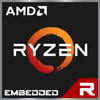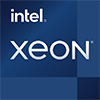Intel Core i7-4600M Benchmark, Test and specs
Last updated:
The Intel Core i7-4600M has 2 cores with 4 threads and is based on the 4. gen of the Intel Core i7 series. The processor uses a mainboard with the BGA 1168 socket and was released in Q4/2013. The Intel Core i7-4600M scores 864 points in the Geekbench 5 single-core benchmark. In the Geekbench 5 multi-core benchmark, the result is 1,887 points.

| Name: | Intel Core i7-4600M |
|---|---|
| Family: | Intel Core i7 (298) |
| CPU group: | Intel Core i 4000M/4000H (38) |
| Architecture: | Haswell H |
| Segment: | Mobile |
| Generation: | 4 |
| Predecessor: | -- |
| Successor: | -- |
CPU Cores and Base Frequency
The Intel Core i7-4600M has 2 CPU cores and can calculate 4 threads in parallel. The clock frequency of the Intel Core i7-4600M is 2.90 GHz (3.60 GHz). The number of CPU cores greatly affects the speed of the processor and is an important performance indicator.
| CPU Cores / Threads: | 2 / 4 |
|---|---|
| Core architecture: | normal |
| Cores: | 2x |
| Hyperthreading / SMT: | Yes |
|---|---|
| Overclocking: | No |
| Frequency: | 2.90 GHz |
| Turbo Frequency (1 Core): | 3.60 GHz |
| Turbo Frequency (2 Cores): | 3.60 GHz |
Internal Graphics
The Intel Core i7-4600M has integrated graphics, called iGPU for short. Specifically, the Intel Core i7-4600M uses the Intel HD Graphics 4600, which has 160 texture shaders and 20 execution units. The iGPU uses the system's main memory as graphics memory and sits on the processor's die.
| GPU name: | Intel HD Graphics 4600 |
|---|---|
| GPU frequency: | 0.40 GHz |
| GPU (Turbo): | 1.30 GHz |
| Compute units: | 20 |
| Shader: | 160 |
| Hardware Raytracing: | No |
| Release date: | Q2/2013 |
| Max. displays: | 3 |
|---|---|
| Generation: | 7.5 |
| Direct X: | 11.1 |
| Technology: | 22 nm |
| Max. GPU Memory: | 2 GB |
| Frame Generation: | No |
Hardware codec support
A photo or video codec that is accelerated in hardware can greatly accelerate the working speed of a processor and extend the battery life of notebooks or smartphones when playing videos.
| h265 / HEVC (8 bit): | No |
|---|---|
| h265 / HEVC (10 bit): | No |
| h264: | Decode / Encode |
| VP8: | No |
| VP9: | No |
| AV1: | No |
|---|---|
| AVC: | Decode / Encode |
| VC-1: | Decode |
| JPEG: | Decode |
Memory & PCIeThe processor can use up to 32 GB memory in 2 (Dual Channel) memory channels. The maximum memory bandwidth is 25.6 GB/s. The memory type as well as the amount of memory can greatly affect the speed of the system. |
|
| Memory type: | Memory bandwidth: |
|---|---|
| DDR3L-1600 | 25.6 GB/s |
| Max. Memory: | 32 GB |
| Memory channels: | 2 (Dual Channel) |
| ECC: | No |
| PCIe: | 3.0 x 16 |
| PCIe Bandwidth: | 15.8 GB/s |
Thermal ManagementThe thermal design power (TDP for short) of the processor is 37 W. The TDP specifies the necessary cooling solution that is required to cool the processor sufficiently. The TDP usually gives a rough idea of the actual power consumption of the CPU. |
|
|---|---|
| TDP (PL1 / PBP): | 37 W |
| TDP (PL2): | -- |
| TDP up: | -- |
| TDP down: | -- |
| Tjunction max.: | -- |
Technical details
The Intel Core i7-4600M is made in 22 nm. The smaller the manufacturing process of a CPU, the more modern and energy-efficient it is. Overall, the processor has 6.00 MB cache. A large cache can greatly speed up the processor's speed in some cases such as games.
| Technology: | 22 nm |
|---|---|
| Chip design: | Monolithic |
| Socket: | BGA 1168 |
| L2-Cache: | -- |
| L3-Cache: | 6.00 MB |
| AES-NI: | Yes |
| Operating systems: | Windows 10, Linux |
| Virtualization: | VT-x, VT-x EPT, VT-d |
|---|---|
| Instruction set (ISA): | x86-64 (64 bit) |
| ISA extensions: | SSE4.1, SSE4.2, AVX2 |
| Release date: | Q4/2013 |
| Release price: | -- |
| Part Number: | -- |
| Documents: | Technical data sheet |
Rate this processor
Benchmark results

The benchmark results for the Intel Core i7-4600M have been carefully checked by us. We only publish benchmark results that have been created by us or that have been submitted by a visitor and then checked by a team member. All results are based on and fullfill our benchmark guidelines.
Geekbench 5, 64bit (Single-Core)
Geekbench 5 is a cross plattform benchmark that heavily uses the systems memory. A fast memory will push the result a lot. The single-core test only uses one CPU core, the amount of cores or hyperthreading ability doesn't count.
|
|
Intel Core i7-6920HQ
4C 8T @ 3.80 GHz |
||
|
|
Intel Core i3-6098P
2C 4T @ 3.60 GHz |
||
|
|
Intel Core m7-6Y75
2C 4T @ 3.10 GHz |
||
|
|
Intel Core i7-4600M
2C 4T @ 3.60 GHz |
||
|
|
Intel Core i5-8350U
4C 8T @ 3.60 GHz |
||
|
|
Intel Xeon E3-1235L v5
4C 4T @ 3.00 GHz |
||
|
|
Intel Core i7-4610M
2C 4T @ 3.60 GHz |
||
Geekbench 5, 64bit (Multi-Core)
Geekbench 5 is a cross plattform benchmark that heavily uses the systems memory. A fast memory will push the result a lot. The multi-core test involves all CPU cores and taks a big advantage of hyperthreading.
|
|
Intel Core i7-6660U
2C 4T @ 2.40 GHz |
||
|
|
AMD Ryzen Embedded R1505G
2C 4T @ 2.80 GHz |
||
|
|
Intel Core i7-7560U
2C 4T @ 3.70 GHz |
||
|
|
Intel Core i7-4600M
2C 4T @ 3.60 GHz |
||
|
|
Intel Core i3-4160
2C 4T @ 3.60 GHz |
||
|
|
Intel Core i3-4340
2C 4T @ 3.60 GHz |
||
|
|
Intel Pentium J6426
4C 4T @ 2.00 GHz |
||
Geekbench 6 (Single-Core)
Geekbench 6 is a benchmark for modern computers, notebooks and smartphones. What is new is an optimized utilization of newer CPU architectures, e.g. based on the big.LITTLE concept and combining CPU cores of different sizes. The single-core benchmark only evaluates the performance of the fastest CPU core, the number of CPU cores in a processor is irrelevant here.
|
|
Intel Core i5-4330M
2C 4T @ 3.50 GHz |
||
|
|
Intel Core i7-4710HQ
4C 8T @ 3.50 GHz |
||
|
|
Intel Core i7-4710MQ
4C 8T @ 3.50 GHz |
||
|
|
Intel Core i7-4600M
2C 4T @ 3.60 GHz |
||
|
|
Qualcomm Snapdragon 7c+ Gen 3
8C 8T @ 2.40 GHz |
||
|
|
Qualcomm Snapdragon 778G+
8C 8T @ 2.50 GHz |
||
|
|
Intel Core i7-4610M
2C 4T @ 3.60 GHz |
||
Geekbench 6 (Multi-Core)
Geekbench 6 is a benchmark for modern computers, notebooks and smartphones. What is new is an optimized utilization of newer CPU architectures, e.g. based on the big.LITTLE concept and combining CPU cores of different sizes. The multi-core benchmark evaluates the performance of all of the processor's CPU cores. Virtual thread improvements such as AMD SMT or Intel's Hyper-Threading have a positive impact on the benchmark result.
|
|
Intel Core i7-2600S
4C 8T @ 2.80 GHz |
||
|
|
AMD EPYC 7281
16C 32T @ 2.70 GHz |
||
|
|
Intel Xeon X3440
4C 8T @ 2.53 GHz |
||
|
|
Intel Core i7-4600M
2C 4T @ 3.60 GHz |
||
|
|
Intel Core i7-6500U
2C 4T @ 2.80 GHz |
||
|
|
Intel Core i5-3570S
4C 4T @ 3.10 GHz |
||
|
|
Intel Core i7-960
4C 8T @ 3.20 GHz |
||
iGPU - FP32 Performance (Single-precision GFLOPS)
The theoretical computing performance of the internal graphics unit of the processor with simple accuracy (32 bit) in GFLOPS. GFLOPS indicates how many billion floating point operations the iGPU can perform per second.
|
|
Intel Core i7-8750H
Intel UHD Graphics 630 @ 1.10 GHz |
||
|
|
Intel Core i5-10210Y
Intel UHD Graphics (Comet Lake) @ 1.05 GHz |
||
|
|
Intel Core i5-10310Y
Intel UHD Graphics (Comet Lake) @ 1.05 GHz |
||
|
|
Intel Core i7-4600M
Intel HD Graphics 4600 @ 1.30 GHz |
||
|
|
Intel Core i7-4910MQ
Intel HD Graphics 4600 @ 1.30 GHz |
||
|
|
Intel Core i7-4810MQ
Intel HD Graphics 4600 @ 1.30 GHz |
||
|
|
Intel Core i7-4610M
Intel HD Graphics 4600 @ 1.30 GHz |
||
Estimated results for PassMark CPU Mark
Some of the CPUs listed below have been benchmarked by CPU-monkey. However the majority of CPUs have not been tested and the results have been estimated by a CPU-monkey’s secret proprietary formula. As such they do not accurately reflect the actual Passmark CPU mark values and are not endorsed by PassMark Software Pty Ltd.
|
|
Intel Core i5-6360U
2C 4T @ 3.00 GHz |
||
|
|
AMD A6-3650
4C 4T @ 2.60 GHz |
||
|
|
Intel Core i7-2715QE
4C 8T @ 2.10 GHz |
||
|
|
Intel Core i7-4600M
2C 4T @ 3.60 GHz |
||
|
|
Intel Core i5-6260U
2C 4T @ 2.70 GHz |
||
|
|
AMD Phenom II X3 B77
3C 3T @ 3.20 GHz |
||
|
|
AMD Ryzen 3 3250C
2C 4T @ 2.80 GHz |
||
Benchmarks

Geekbench 5 (SC)
2,490 entries
2,490 entries

Geekbench 5 (MC)
2,462 entries
2,462 entries

Geekbench 6 (SC)
1,757 entries
1,757 entries

Geekbench 6 (MC)
1,704 entries
1,704 entries

FP32 SP (iGPU)
2,042 entries
2,042 entries

PassMark CPU-Mark
2,392 entries
2,392 entries

Geekbench 3 (SC)
942 entries
942 entries

Geekbench 3 (MC)
938 entries
938 entries

Cinebench R11.5 iGPU
383 entries
383 entries
Popular comparisons
back to index













